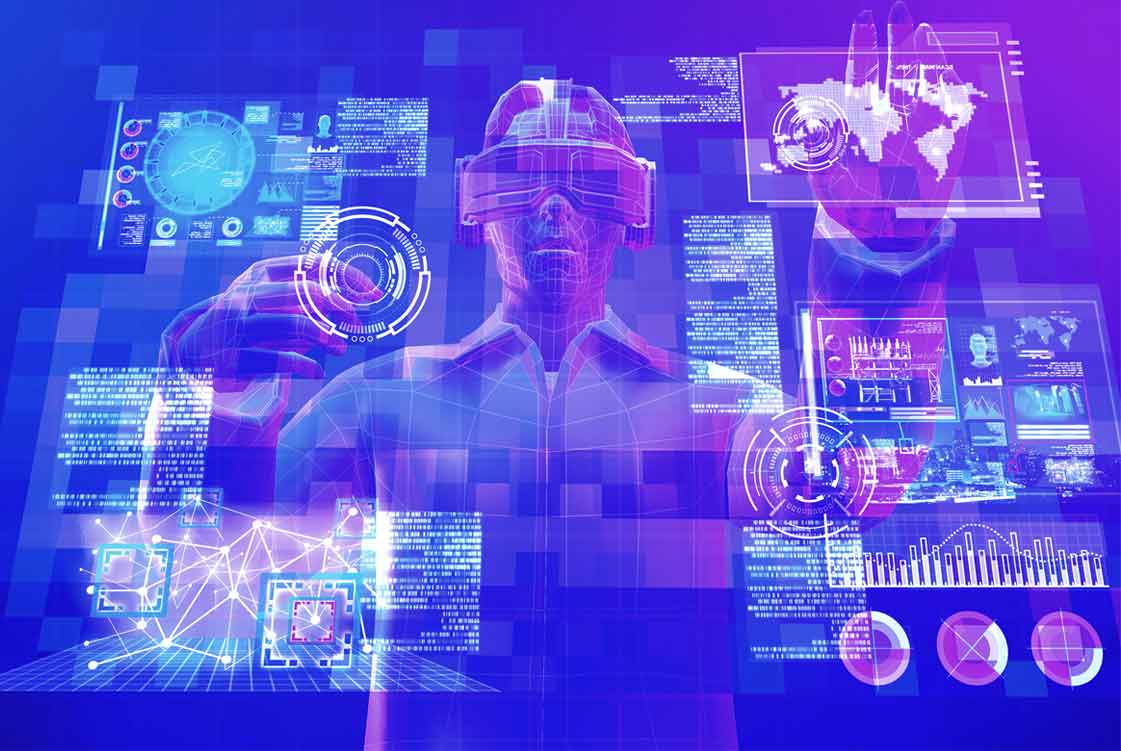We live in a time of transformational digital acceleration, and nowhere is that more evident than in the Metaverse.
When Mark Zuckerberg announced Facebook’s first foray into the Metaverse, many wondered what its implications were for social interaction, especially in the wake of a global pandemic. But business leaders on the cutting edge of innovation were also eager to see how it would unfold for their companies. Zuckerberg’s emphasis on Meta as a “social technology company” with a distinct focus on social responsibility will change the way people work, socialize, and experience the world around us. This new technology introduces a world that is unlimited by normal physical boundaries—therein lies its appeal for those looking for a more global reach.
In his recent podcast interview with Tim Ferris, Mark Zuckerberg discusses how the Metaverse fits into our new Creator Economy, the importance of innovation, and what the Metaverse means for our companies.
So how did we get to this point of transformational change, and what are its implications for life and business? Here are some of my thoughts.
How the Pandemic Made A Way For the Metaverse
It’s no secret that the pandemic changed the way we live, work, and interact. With a distinct emphasis on virtual meetings for socializing and business, technology had to accelerate quickly to keep up with society’s new demands.
But what many don’t realize is that the Metaverse would have come into existence regardless of the pandemic. The emphasis here is the uniquely accelerated timeline that the pandemic made possible. We were already edging toward the metaverse before the pandemic with books like Ready Player One introducing this concept to the masses back in 2011. Now Facebook is ready to spearhead the new movement.
While some business leaders were reluctant to implement certain technologies, or even reluctant to give their employees one day of remote work per week, it is now imperative to offer flexible work styles (if your company can support them) and to implement digital tools to ensure your company stays ahead of the curve. The rate of digital acceleration we saw during the pandemic was truly unprecedented—a trend that will only continue as discussions around how we work and how we achieve the goals and aspirations of the companies we work with.
Equalizing Opportunities
In the metaverse, imagine that you will be able to go about many of the day-to-day interactions and occurrences of your everyday life—it’ll just be in your avatar form. When we think of the metaverse and avatars (things being “lifelike” but not real), most of us probably think of gaming, the movie Avatar, or Ready Player One (by the way, this is also a movie)—but the metaverse will make more mundane tasks like shopping and leisurely things, like visiting a new city, possible in your avatar form as well. With its customizable appearance, this virtual form can be a human, animal, or something more abstract. The Metaverse will use comprehensive VR technology to create the feeling of truly being in person, and will even show body language, realistic eye contact, and other things we don’t usually get in virtual meetings.
Business leaders can use this new technology to host board meetings and company meetings with employees spread across the globe but with a more lifelike feel. Imagine your pandemic-era boardroom meetings via Zoom. Now, imagine donning a virtual reality headset and experiencing a style of remote meeting that feels more similar to being in person with your co-workers or colleagues. We’ve already proven that we don’t need to always meet in person, but now, the Metaverse gives us the ability to meet virtually in a much more realistic way. At the beginning of this technology, virtual meetings were mostly conducted for internal meetings vs. external ones, but this is a huge part of businesses’ time anyways.
This means business is no longer confined by location. Zuckerberg heavily emphasized how the Metaverse can help “equalize opportunity” in this podcast episode. This means giving people opportunities to work at companies regardless of their location, which can unlock social and economic opportunities—if you can be present where you are physically coupled with a worldwide network, your options increase significantly. This will have a huge influence on business.
Leaders who open up their companies to remote work styles and the power of the Metaverse will benefit from a worldwide hiring pool and all it has to offer. Hiring will no longer be based on location but purely on ability. If you run a company in New York, you can hire someone in London, meet with them in the Metaverse, and have a connected business relationship through the power of VR
The Metaverse and the Creator Economy
A flourishing creator economy within the Metaverse is almost inevitable. Think about it: you have millions of people custom-making Avatars, powering their Metaverse purchases through cryptocurrencies, creating NFTs that will exist only within this virtual platform, and developing metaverse-exclusive businesses. This introduces whole new arenas of business to our increasingly digital world. Companies will have to build processes and systems specific to the Metaverse to sustain this economy.
Content creators will play an integral part in our transition into the Metaverse. This new era of content creation, defined by innovation, will outpace previous eras of business development and cultural change. Zuckerberg knows it, which is why he is both insistent upon and excited about Meta’s potential.
Business leaders who find themselves at the forefront of this cultural change will help define our new economy and this new era of business. The pandemic ushered in a wave of digital acceleration that is only increasing. As we continue adapting to these changes, our work, social interactions, and businesses will continue changing—for the better.







